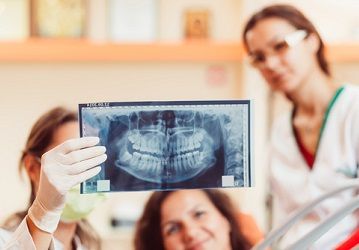Startup Medical Practice Offers Glimpse into Dental Future
Forward, a new healthcare startup, is chaired by Adrian Aoun, a former Google employee who worked on the company's artificial intelligence team. He says this new practice model will change the role of doctors to free them from bureaucratic tasks and, in turn, to make healthcare feel comforting and smart to patients. At the moment, Forward is a bit cost-prohibitive, but Aoun expects that to change.

Forward is building its care model on real-time diagnostic tools and treatment decisions.
Lead by former Google employee Adrian Aoun, a new healthcare startup company has opened in San Francisco that could shape the future of medical and dental practices across the country. The company, named Forward, is the first of its kind to incorporate data-driven, real-time healthcare technologies into patient care.
RELATED: More Coverage on Advanced Technology in Dentistry
· Technology Helps Periodontist Take Service to New Level
· Dentists Could Use New Imaging Method to Detect Cavities Earlier
· The Costs and Benefits of a Digital Dental Workflow
Aoun previously worked at Google on the company’s artificial intelligence (AI) team. He says his new practice model has “reformed the role of doctors to free them from bureaucratic tasks and, in turn, to make healthcare feel comforting and smart to patients.”
The company’s medical care model is built on real-time tools that doctors use to guide diagnostic and treatment decisions, including technology that is used to predict adverse health events.
Forward incorporates several types of medical technologies into a comprehensive patient-care model. So far, patients have access to a body scanner that gives a quick picture of overall health, DNA sequencing that can be used to identify hereditary cancer risks, and 24/7 access to doctors and nurses through an app developed exclusively for the company. Patients can also have real-time blood testing completed to identify problems in as little as 12 minutes.
Even though Aoun’s practice is medically focused, the opening of such a facility has implications for the dental industry. Such technologies could be used to quickly and accurately diagnose oral health problems within minutes of the patient arriving at the office. Treatments could be tailored to fit each patient through the identification of individual biomarkers and other genetic factors that can influence the success or failure of dental treatments.
While it’s exciting to think about AI and other technologies changing the way both dentistry and medicine are practiced, it’s also important to keep in mind that companies are still developing these systems. Even though some of these technologies have been developed to the point of usefulness, they are still expensive, at least at this point.
"Our system is smart, but it's not yet cheap. It's more like a Tesla Model S than like a Model 3. We have a long way to go in making what we do affordable for everyone, not just for the kinds of people who are fortunate enough to be in a position to spend money for better health. Fortunately, the same technologies that make the system smarter also make it cheaper over time,” said Aoun.
ACTIVA BioACTIVE Bulk Flow Marks Pulpdent’s First Major Product Release in 4 Years
December 12th 2024Next-generation bulk-fill dental restorative raises the standard of care for bulk-fill procedures by providing natural remineralization support, while also overcoming current bulk-fill limitations.